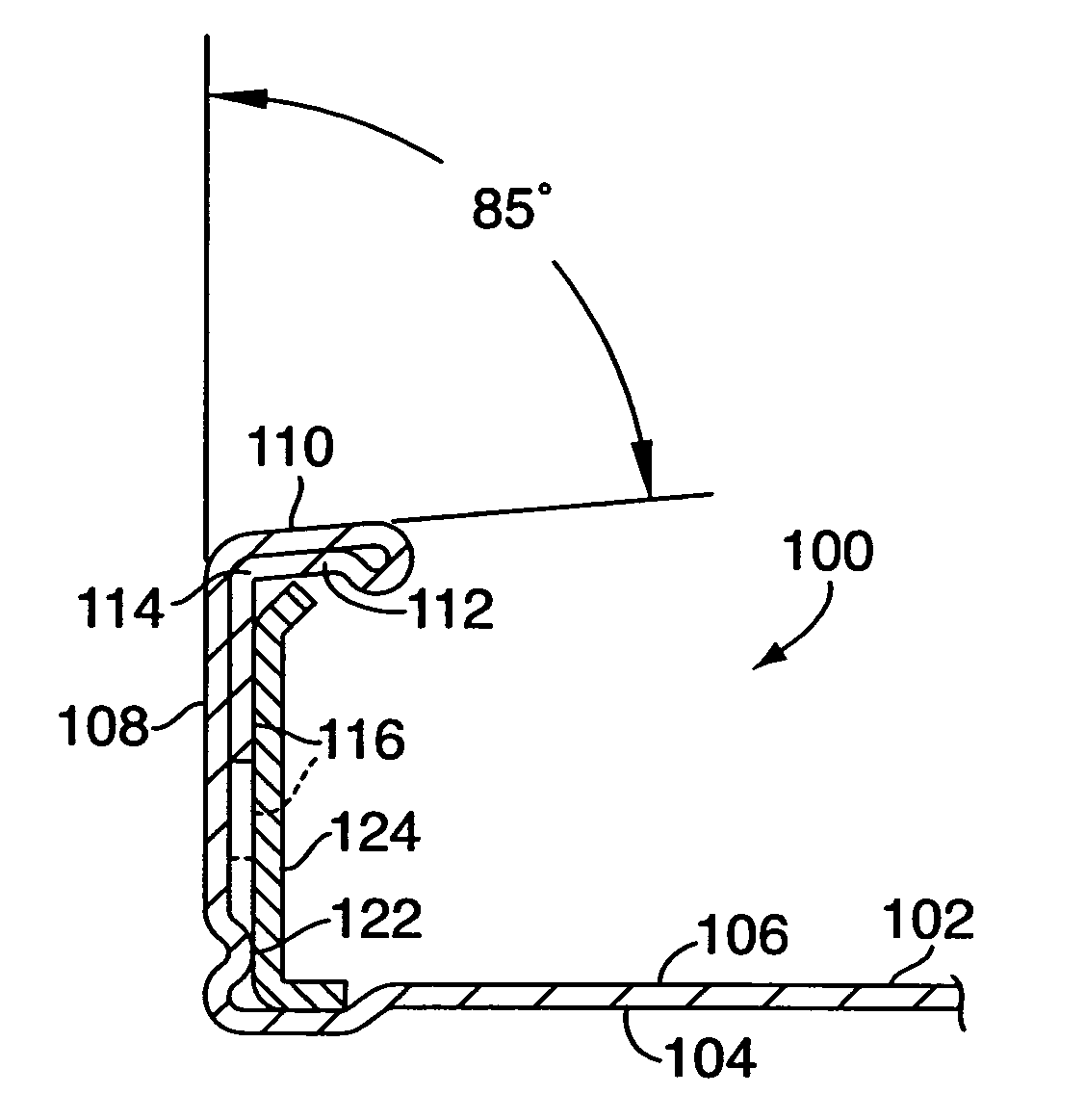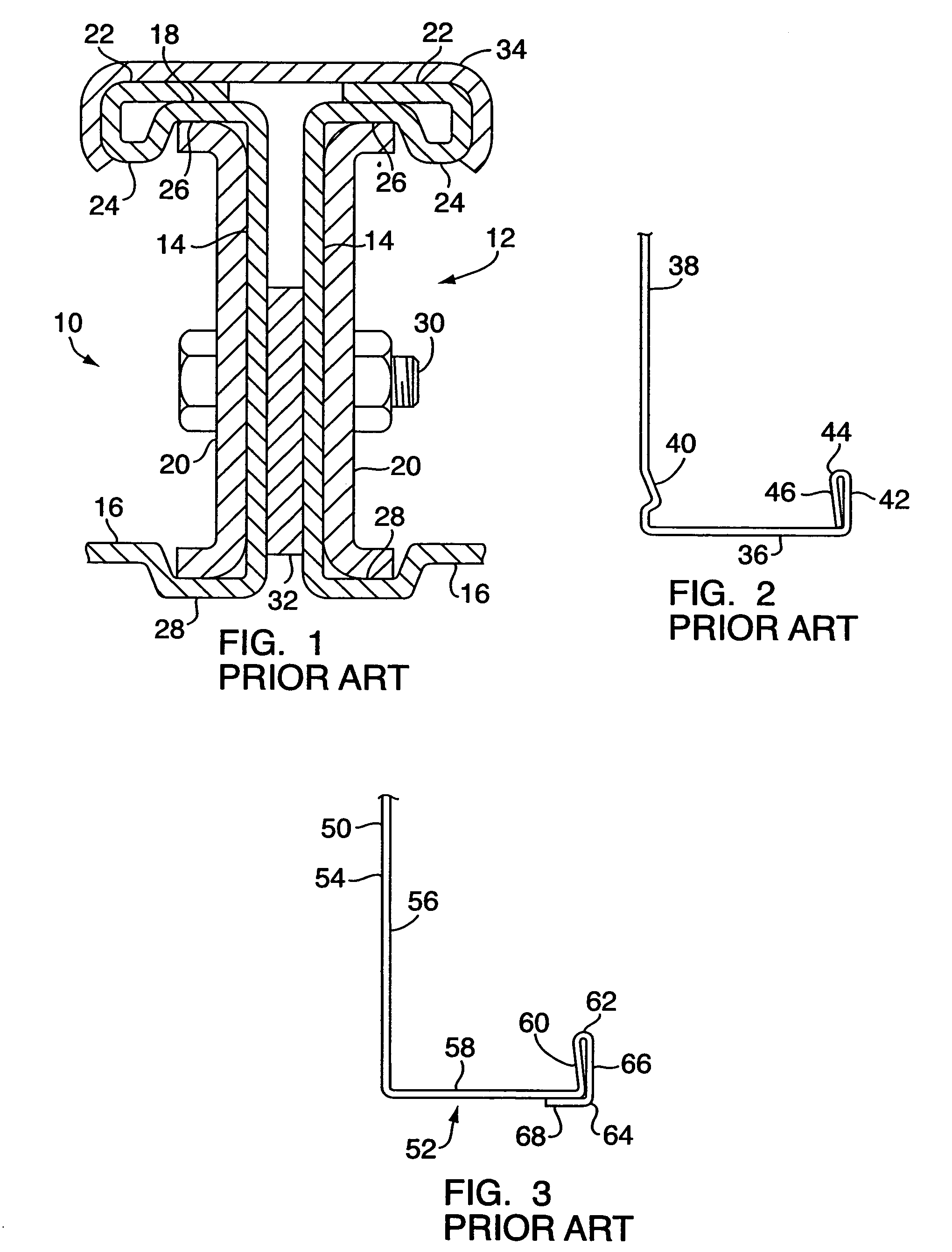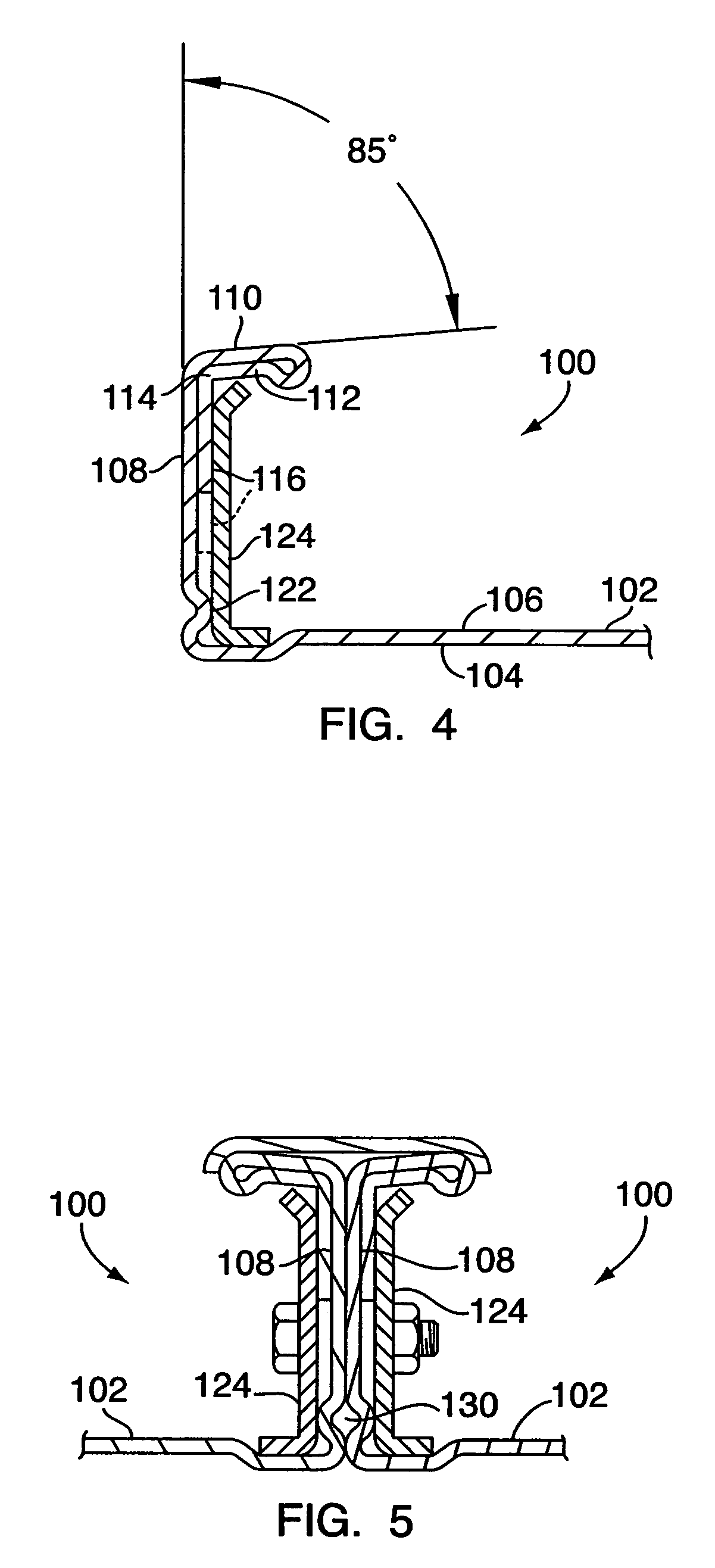Integral transverse flanges for a duct connecting system
a technology of transverse flanges and duct connections, which is applied in the direction of hose connections, lighting and heating apparatus, heating types, etc., can solve the problems of displaced corner connectors, and achieve the effects of increasing strength and rigidity across the joint, increasing strength and rigidity, and increasing rigidity
- Summary
- Abstract
- Description
- Claims
- Application Information
AI Technical Summary
Benefits of technology
Problems solved by technology
Method used
Image
Examples
Embodiment Construction
[0033]As shown in FIG. 4, the transverse flange 100 includes a duct wall 102 having an inside surface 104 and an outside surface 106. The flange 100 further includes a first upturned portion 108 which extends substantially perpendicularly from the duct wall 102, and a second rearwardly bent portion 110 extending substantially parallel to, and opposite of, the duct wall 102.
[0034]The end of second rearwardly bent portion 110 is turned over toward duct wall 90 and rounded back forming a third return portion 112. That is, as illustrated in FIG. 4, the second rearwardly bent portion 110 is turned approximately 180° towards the outside surface 106 of the duct wall 102. The return portion 112 is extended to form a fourth L-shaped portion 114 having a fifth portion 116 arranged to extend adjacent to and in close relation with the outside surface 106 of the first upturned portion 108.
[0035]One important aspect of the present invention is therefore that the third return portion 112 is bent b...
PUM
 Login to View More
Login to View More Abstract
Description
Claims
Application Information
 Login to View More
Login to View More - R&D
- Intellectual Property
- Life Sciences
- Materials
- Tech Scout
- Unparalleled Data Quality
- Higher Quality Content
- 60% Fewer Hallucinations
Browse by: Latest US Patents, China's latest patents, Technical Efficacy Thesaurus, Application Domain, Technology Topic, Popular Technical Reports.
© 2025 PatSnap. All rights reserved.Legal|Privacy policy|Modern Slavery Act Transparency Statement|Sitemap|About US| Contact US: help@patsnap.com



